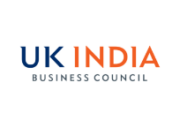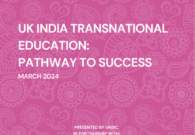Encouraging trade and investment
The UK should be India’s partner of choice across all fields, says Kumar Iyer, British Deputy High Commissioner in Mumbai.
Kumar Iyer is the British Deputy High Commissioner in Mumbai with responsibility for Western India and the Director General of UK Trade and Investment with overall responsibility for the UK-India trade relationship. The Mumbai office has some 150 staff, whose main work covers trade and investment, entry clearance and bilateral relations with India. There are over 80 UKTI staff across India that work to support British businesses wanting to trade in India and Indian businesses investing in the UK.
From your perspective what is the state of the relationship between the UK and India?
The relationship is in good place: the UK is the largest G20 investor in India, last year it invested more in India than America and Japan combined. In turn, India invests more in the UK than in the EU combined.
What are the key differences in doing trade with India?
There are many, from language and culture to laws and regulations. Perhaps one of the things that isn’t always obvious is that it’s a federal setup, and the States are quite autonomous and have quite a bit of power. They all have varying levels of bureaucracy so picking the right locations is important. Since Prime Minister Modi came to power there has been an increased level of competition between the States, each one of them vying to outdo the other in terms of how business-friendly they are.
One of the big drivers of this change is Mr Modi himself, and it stems from his time as a Chief Minister. He showed what was possible at a state level, even at a time when the central government was from a different party. So the state Chief Ministers’ incentives are very much aligned in trying to make things as easy as possible for businesses.
And how is the ease of business?
It’s moving along. The government is talking about doing the right things and in many cases it already has done the right things, such as the Insurance Bill. Some of the relaxation in FDI has helped to open doors and encourage people to think a bit more optimistically about India. But the government is facing ongoing challenges in terms of passing certain pieces of legislation, but what’s important here is that they’re still trying, and they’re trying hard. It’ll take time – Prime Minister Modi himself said that it’s going to be a 10-year journey to put through the bulk of his reform agenda and he’s probably right.
As well as regulatory reforms India also needs better infrastructure, whether it’s roads, hospitals, electricity or energy. It will take time. However, the goodwill and the number of people who want India to succeed is quite significant. So if the government can bring about the reform needed to unlock that goodwill and that desire to “Make in India” and to invest in India, then I think India has a lot that’s going for it.
What is your relationship with the UK India Business Council and how does UKTI work alongside them?
I speak to Patricia Hewitt and Richard Heald on a regular basis, and we have representatives that sit on the UK India Business Council board so the relationship is good and it’s close – it needs to be. And it’s early days as well . People forget that no more than two years ago UK India Business Council was yet to build a physical presence in India and so the teams are still learning how they interact and work with each other, but so far so good.
Which sectors are you particularly focusing on and looking to encourage in your role?
India’s a big country and we don’t pick one or two sectors; we pick five, six, seven sectors. That’s because a bilateral relationship of this size needs to operate across education, healthcare, financial services, infrastructure as well as retail and consumer goods, in which India is one of the biggest and most rapidly growing markets in the world. So the question is not so much about deprioritising or prioritising sectors, but being able to support UK business efficiently across the board.
Where prioritisation comes in is making sure that you are supporting in the areas that are most productive. UKTI has improved its performance over the last two years both in investment, where investments from India to the UK increased by 65% last year and also in trade where UKTI has supported over £1bn of business wins this year already (a 10 times increase on the previous year). A large part of that has been because of our relationship with UK India Business Council, which has taken on a lot of the high-volume work such as Market entry consultancy work and the market introductory services.
The new UKIBC Business Centres are great; if I was a UK business I would think this is fantastic – I can get off a plane, I can rent a desk by the week, I can get an internet access that works, put an address on my business card and find immediate support, including to hire staff and manage payroll. In an operating environment like India that is a definitively superior offer. It allows UKTI to focus on the areas where government can help the most, which is the focus of our strategy.
How is your background in the private sector helping you in the role?
It is helpful having a commercial background; I’ve built enough spreadsheets and done enough presentations to know both their advantages and their limits. It also helps me understand better what the role of government can be and where government can help. UKTI’s work is to focus on the aspects that either only government can do or government can do best. In India, government involvement and support is needed in many cases, so having a private sector background helps me to understand not just where UK India Business Council and its members are coming from, but also where wider UK business is coming from, making sure we focus UK taxpayer energy on the areas that UK business really needs us to help with.
What is the biggest challenge that needs to be overcome when encouraging UK-India trade?
There are some real-world challenges but there are also some perception challenges as well. On the realworld side it can be difficult turning up in India if you have no experience of the market and India does have more forms to fill than many other countries! More damaging is the perception that things are worse than they really are.
The India-UK Business Convention in September is tackling these issues. Such large-scale gatherings are good and efficient ways for businesses to test out the market if they’re not already thinking about it, and if they are already thinking about it, to go that little bit deeper. In India having a good local partner is a really good strategy for a lot of businesses. Education is obviously a massive issue in India with the large youth population.
Can you tell us a bit about the Generation UK project and what you hope to achieve through that?
The average age in India is 25 and if that section of the population is well-skilled, well-trained and well-developed, then you’ve got a big demographic dividend there. No other large country has such an advantage in this area. We are not only focused on bringing UK skills providers out here and encouraging bright Indian students to study in the UK but we are trying to encourage a two way flow, with UK students coming to India as part of Generation UK. This year was the first trial run for Generation UK. We opened up 500 spots and had 2500 applications. It shows clearly the interest and the demand. It’s a really interesting project because a lot of people think about our skills and education connection as being relatively one-way, but if you want to build long-term partnerships you need people going back and forth in both directions. Generation UK is about bringing British students across to India and I’m really excited about it. So hopefully over the course of five years there will be 25,000 students.
Your role as Deputy High Commissioner means your responsibilities extend beyond trade. Are you taking steps to encourage cultural dialogue between the countries?
We work obviously with the British Council very closely on all of these and even since I’ve been here, the British Museum has brought several displays across to Mumbai, as has the Tate Gallery, the British Library, as well as artists from Julian Opie to Howard Hodgkins. It’s important to build a relationship on lots of levels – if you want any chance of understanding another country you need to understand their art and their history otherwise you’re going to struggle to understand them at all.
What are your ambitions and aims for the future of the relationship? What would signify success in your opinion?
I’m exactly half-way through my posting and if someone had given me where we’d be at this point I would probably have taken it. On the commercial side we’ve done a lot in the last two years and my hope would be to hold that same position or do slightly better on the investment side. On the trade side I think there is still a lot further to go and we see the EU3 as a key benchmark to keep beating – we have beaten them over the last three years but we need to continue to do a lot better. On the non-trade and investment side, we have the second largest number of visa applications in the world that come through Western India and we have a very large consular workload – for example more than 120,000 British nationals visit just Goa every year.
There is a wide range of areas that we run smoothly, but just continuing to get them ticking over the next few years would be a big part of that success. But the real ambition is to position the UK as India’s partner of choice across all the fields in which we operate.
Kumar came to Mumbai in July 2013 from Her Majesty’s Treasury where he held a number of senior posts including most recently as Head of Financial Sector Interventions which included responsibility for the Government’s stakes in the Royal Bank of Scotland and Lloyds Banking Group; and Deputy Director for Strategy, Planning and Budget which included oversight of the UK Budget process and overall strategy for the Treasury.
Prior to that Kumar was Deputy Director of the Prime Minister’s Strategy Unit, where he worked on a range of policy priorities for the Prime Minister. Prior to his public sector career, Kumar spent several years at the Boston Consulting Group working mainly in the Financial Services Practice but also for large multinational media and retail clients. Kumar joined BCG from Harvard University where he was a Kennedy Scholar and also a Teaching Fellow in International Capital Markets at the Kennedy School of Government. He has an MPhil in Economics from Cambridge University where he was a Bank of England scholar and an undergraduate tutor in microeconomics; and a BA in Economics from Durham University where he was a Deloitte scholar.







